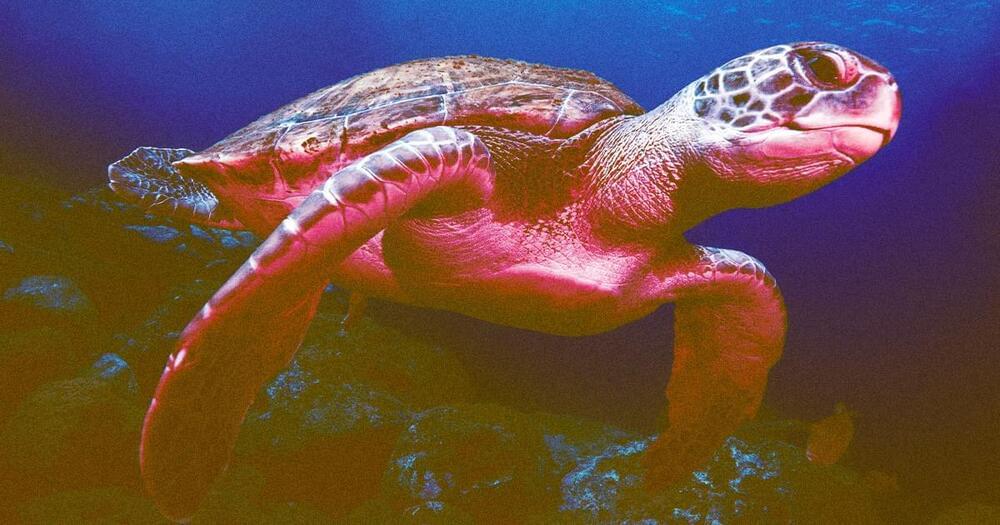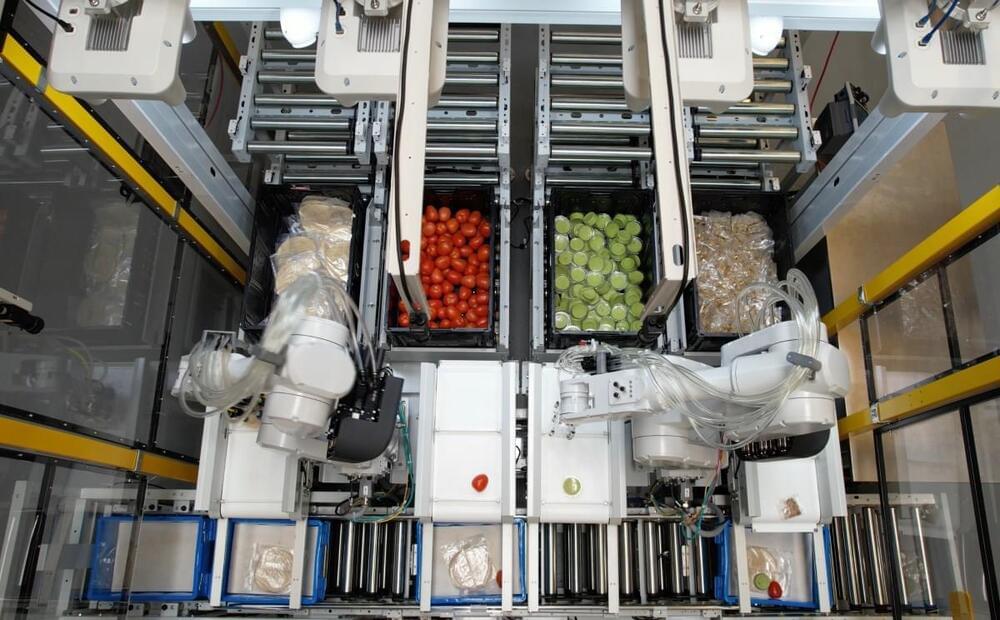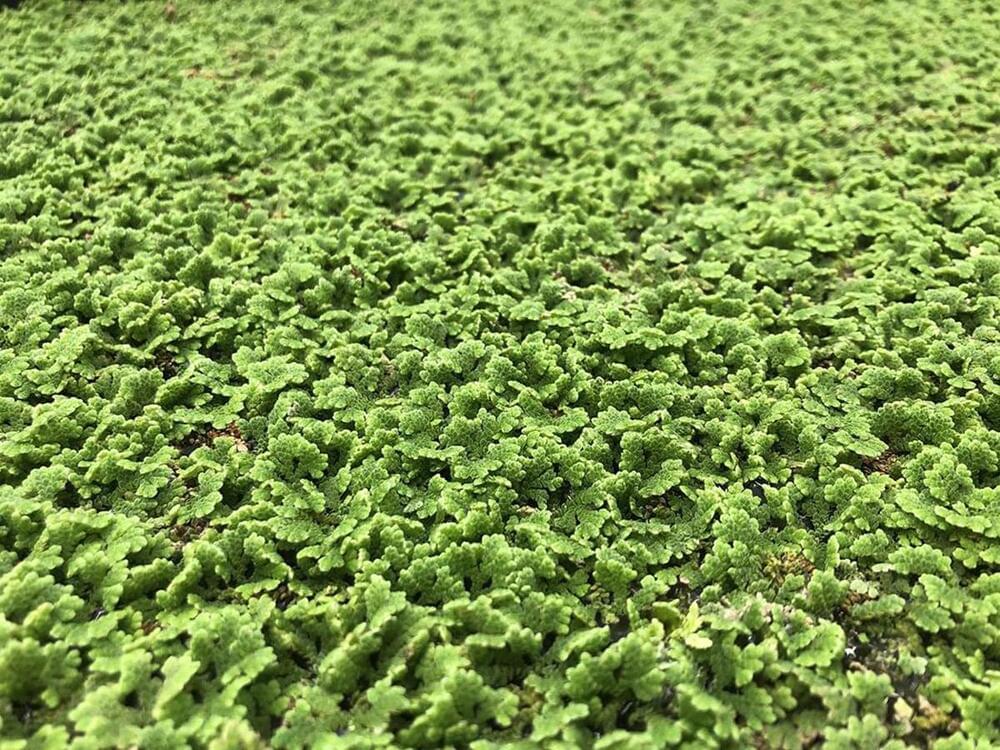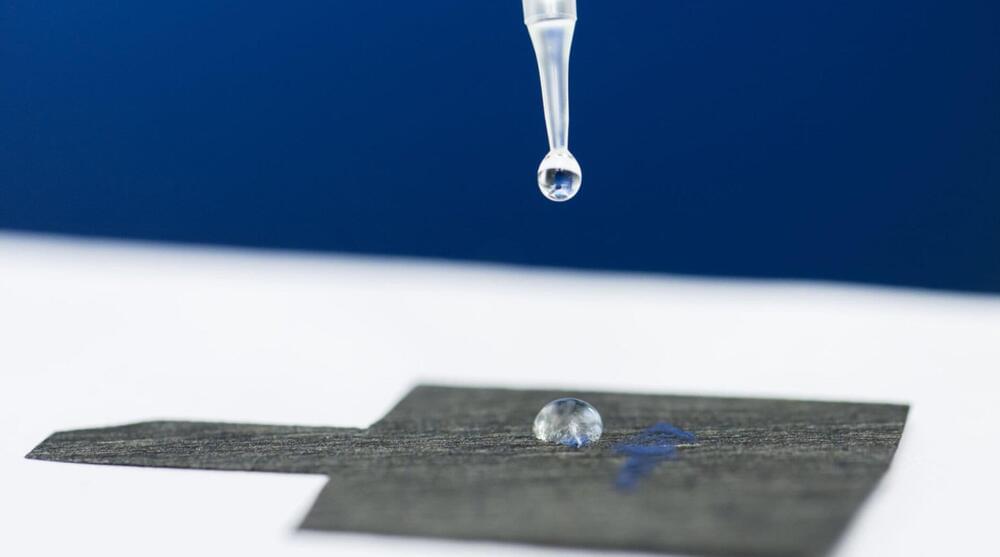Some dairy farms could turn into lifesaving insulin factories.



Results are in from the six-month test of the Pyxis Ocean, a cargo ship outfitted with fiberglass sails as part of a fuel-saving test by Cargill Inc.
The Wayzata, Minn.-based agriculture giant said the partially wind-powered cargo ship saved an average of 3 tons of fuel per day and 11.2 tons of carbon dioxide emissions. Cargill calculates that this savings would be the equivalent of taking 480 cars off the road.
In optimal conditions, the ship saved nearly 11 tons per day. That’s roughly a 37% decrease in carbon emissions. According to Ship and Bunker’s global 20 port average, that’s a savings of about $656 per metric ton in fuel. Most cargo ships are fueled by bunker fuel, also known as heavy fuel oil.

Researchers at the US Southwest Research Institute (SwRI) have developed camera-based autonomous driving tools that can work without deploying technologies like LIDAR and RADAR.
The technology can potentially deliver stealth capabilities for the military while finding applications in space and agriculture.
Modern autonomous driving solutions rely extensively on light detection and ranging (LIDAR) sensors to visualize objects around the vehicle. A software solution then identifies the objects nearby and helps the vehicle’s computer decide whether to halt or slow down.

The mysteries of photosynthesis have been unveiled at the atomic level, providing significant new insights into this plant super-power that transformed the Earth into a green landscape over a billion years ago.
John Innes Centre researchers used an advanced microscopy method called cryo-EM to explore how the photosynthetic proteins are made.
The study, published in Cell, presents a model and resources to stimulate further fundamental discoveries in this field and assist longer-term goals of developing more resilient crops.

On the Zanzibarian island of Pemba, sea turtle meat is considered a delicacy — but it also, apparently, can fatally poison you.
As the Associated Press and other outlets report, nine people have died and 78 others were hospitalized after eating sea turtle on Pemba, an island in the Zanzibar archipelago in the Indian Ocean.
The veal-tasting meat of green turtles is, like in other coastal communities throughout Asia and Africa, still a delicacy on Zanzibar — despite the endangered status of the animals and, as this incident indicates, its predisposition towards severe and sometimes fatal food poisoning.

Covariant this week announced the launch of RFM-1 (Robotics Foundation Model 1). Peter Chen, the co-founder and CEO of the UC Berkeley artificial intelligence spinout tells TechCrunch the platform, “is basically a large language model (LLM), but for robot language.”
RFM-1 is the result of, among other things, a massive trove of data collected from the deployment of Covariant’s Brain AI platform. With customer consent, the startup has been building the robot equivalent of an LLM database.
“The vision of RFM-1 is to power the billions of robots to come,” Chen says. “We at Covariant have already deployed lots of robots at warehouses with success. But that is not the limit of where we want to get to. We really want to power robots in manufacturing, food processing, recycling, agriculture, the service industry and even into people’s homes.”

A groundbreaking study published in Nature Communications reveals how maternal and fetal genes, influenced by food availability, play a crucial role in the growth of a baby’s cerebral cortex, linking higher birth weight to an enlarged brain area. This research highlights the significant impact of genetics and environment on early brain development.

An often-overlooked water plant that can double its biomass in two days, capture nitrogen from the air — making it a valuable green fertilizer — and be fed to poultry and livestock could serve as life-saving food for humans in the event of a catastrophe or disaster, a new study led by Penn State researchers suggests.
Native to the eastern U.S., the plant, azolla caroliniana Willd — commonly known as Carolina azolla — also could ease food insecurity in the near future, according to findings recently published in Food Science & Nutrition. The researchers found that the Carolina strain of azolla is more digestible and nutritious for humans than azolla varieties that grow in the wild and also are cultivated in Asia and Africa for livestock feed.
Here Dr Tan introduces geranylgeraniol (GG), talks about its discovery and its importance in human metabolism.
Wellness Extract 5% discount Code MODERN10
GG Essential https://collabs.shop/ivoshz.
Vitamin E, Delta Gold https://collabs.shop/gfjyof.
Bio Quinol with GG https://collabs.shop/wm9cce.
Renue By Science 10% : Code MHS https://tinyurl.com/35jyuk33
CoQ10 https://bit.ly/4bX3I6P\r.
ProHealth 15% discount Code MODERN: https://prohealth.pxf.io/Vm9BoA
CoQ10 https://prohealth.pxf.io/LX12N0
DoNotAge 10% discount code MHS https://tinyurl.com/6dbvhv87
Pure NMN https://tinyurl.com/wyzj2f3d.
Nuchido Time+ 20% discount of first purchase with code MODERN20 https://nuchido.com/MODERN
NOVOS https://novos.sjv.io/QyWP7o code 5OFFMHS
NMN Bio 10% off all products https://tinyurl.com/2af2v2fw Code ModernHealthSpan10 in link.
☕If you would like to support our channel, we’d love a coffee…thank you! https://www.buymeacoffee.com/mhealthspan.
Momentous Supplements 15% discount Code MHS https://momentous.go2cloud.org/SH2s.
Creatine Monohydrate https://momentous.go2cloud.org/SH3E
Oxford Healthspan Primeadine Spermidine supplements: 15% discount Code MHS https://tinyurl.com/28admfxr.
Insidetracker 20% discount Code MODERN20 https://insidetracker.sjv.io/NkbP7V
Bulletproof 15% off with coupon code: HEALTHSPAN15: https://tinyurl.com/4npjk5vp.
SiPhox Health 20% Code MODERN blood test (only in US \& Canada) https://siphoxhealth.com/discount/modern.
OmegaQuant 5% discount Code MODERN https://omegaquant.com/shop/
⏲️Chapters.
00:00 Discovering GG
02:50 GG and Vit E, CoQ10
08:10 GG in metabolism — in plants.
10:05 In humans.
18:20 GG \& statins.
20:30 Sarcopenia.
🌐Links in this video.
American River Nutrition https://americanrivernutrition.com/
Dr Tan’s book, The Truth About Vitamin E, is available from https://barrietan.com/book/
You can download with the code Modern Healthspan.
GG Article.
https://www.wholefoodsmagazine.com/ar…
Potential role of geranylgeraniol in managing statin-associated muscle symptoms: a COVID-19 related perspective.
https://pubmed.ncbi.nlm.nih.gov/38046…
Dr. Barrie Tan was formerly an assistant professor at the University of Massachusetts in Amherst (Chemistry, Food Science \& Nutrition). His mission at American River Nutrition is to deliver the highest quality nutritional products based on sound scientific research. Today, his research focuses on lipid-soluble nutrients that have the potential to slow chronic conditions.

Scientists from the University of Rochester have developed new electrochemical approaches to clean up pollution from “forever chemicals” found in clothing, food packaging, firefighting foams, and a wide array of other products. A new Journal of Catalysis study describes nanocatalysts developed to remediate per-and polyfluoroalkyl substances known as PFAS.
The researchers, led by assistant professor of chemical engineering Astrid Müller, focused on a specific type of PFAS called Perfluorooctane sulfonate (PFOS), which was once widely used for stain-resistant products but is now banned in much of the world for its harm to human and animal health. PFOS is still widespread and persistent in the environment despite being phased out by US manufacturers in the early 2000s, continuing to show up in water supplies.